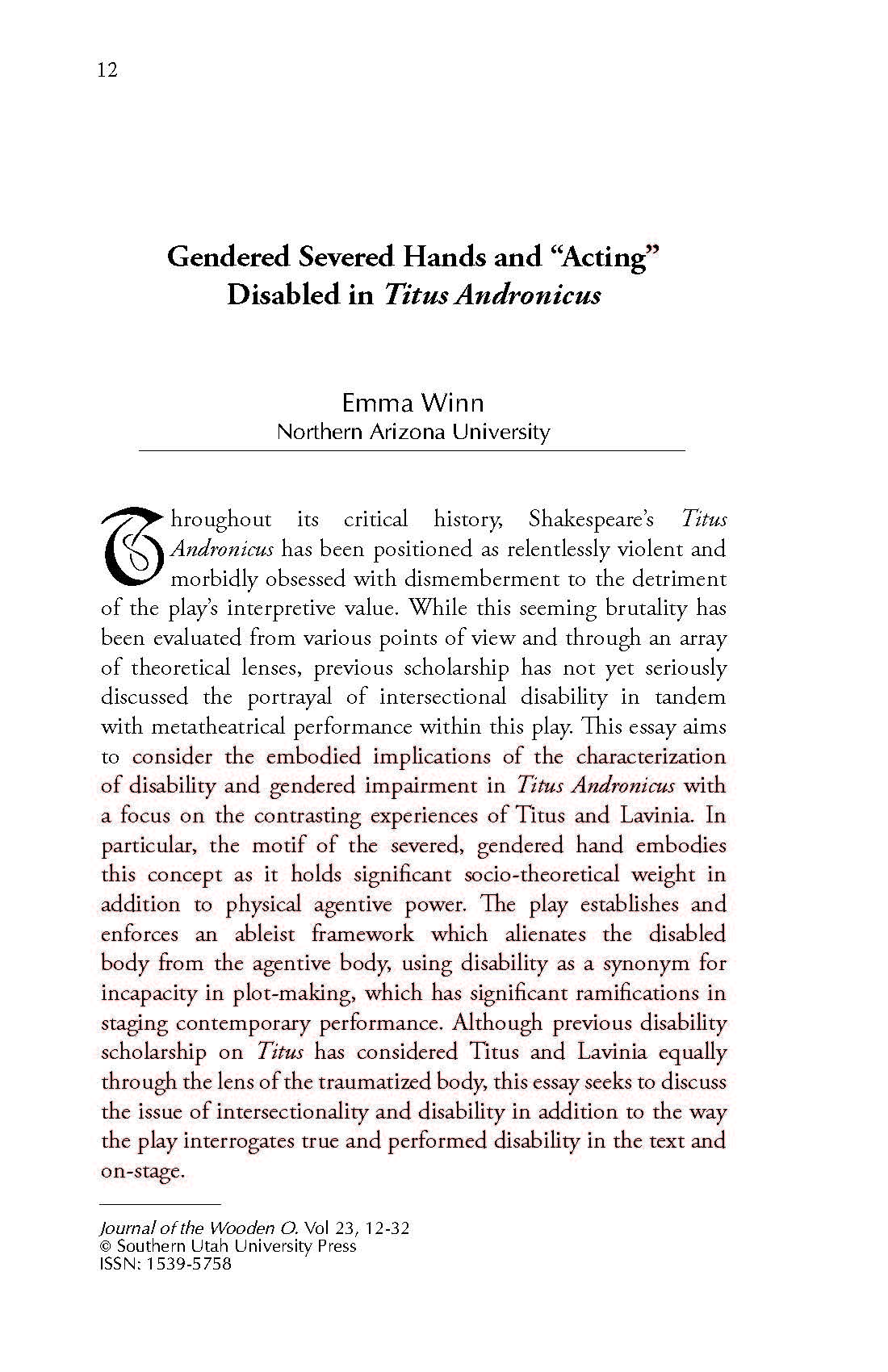Gendered Severed Hands and "Acting" Disabled in Titus Andronicus
Main Article Content
Abstract
Throughout its critical history, Shakespeare’s Titus Andronicus has been positioned as relentlessly violent and morbidly obsessed with dismemberment to the detriment of the play’s interpretive value. While this seeming brutality has been evaluated from various points of view and through an array of theoretical lenses, previous scholarship has not yet seriously discussed the portrayal of intersectional disability in tandem with metatheatrical performance within this play. This essay aims to consider the embodied implications of the characterization of disability and gendered impairment in Titus Andronicus with a focus on the contrasting experiences of Titus and Lavinia. In particular, the motif of the severed, gendered hand embodies this concept as it holds significant socio-theoretical weight in addition to physical agentive power. The play establishes and enforces an ableist framework which alienates the disabled body from the agentive body, using disability as a synonym for incapacity in plot-making, which has significant ramifications in staging contemporary performance. Although previous disability scholarship on Titus has considered Titus and Lavinia equally through the lens of the traumatized body, this essay seeks to discuss the issue of intersectionality and disability in addition to the way the play interrogates true and performed disability in the text and on-stage.
